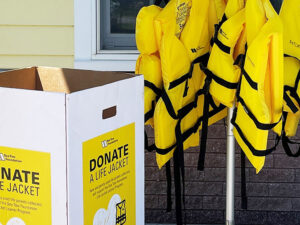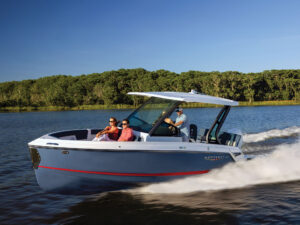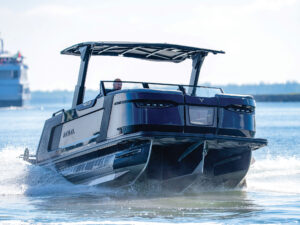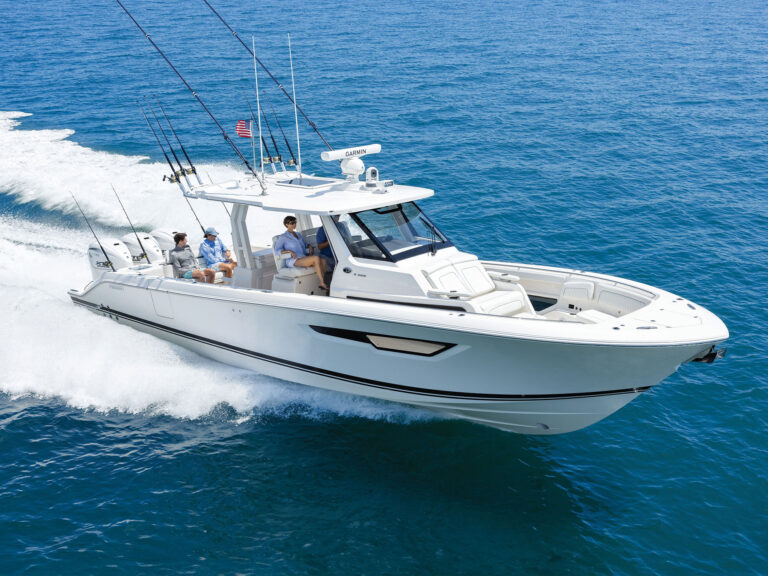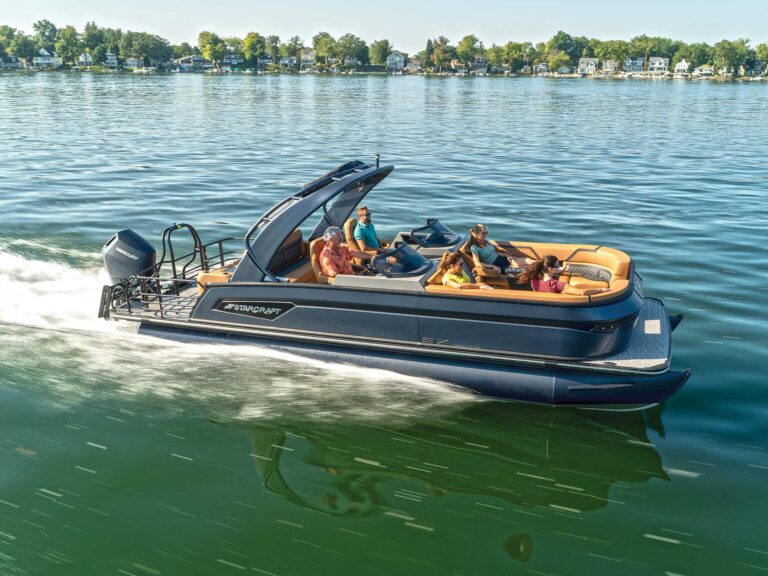
Here’s an amazing statistic from BoatU.S., the nation’s largest organization of recreational boaters: About half of the 12 million registered boats in the United States are not covered by insurance. Because you are a Boating reader, we know you are smarter than average and have purchased an insurance policy on your boat. But are you well-covered or just sorta covered? With the input of insurance experts at BoatU.S. (which has been owned by insurance giant Geico since 2015), we’ve identified six key policy features often overlooked by boat owners — details that could mean the difference between paying significant costs out of pocket or coming out of a claim in good financial shape. Study the fine print on the declarations page of your boat policy or consult a marine-insurance agent to make sure a catastrophe doesn’t leave you high, dry and maybe broke.

Consequential Damage
According to BoatU.S., half of all sinkings occur at the dock after the failure of some small part below the waterline, such as a through-hull fitting or rubber sterndrive bellows. These parts most often fail due to “wear, tear and corrosion” or a lack of maintenance, so the insurance policy won’t pay for a new bellows. But suppose as a consequence of the failed bellows, your boat sinks and is a total loss. Who pays for that? Make certain your boat policy includes consequential damage coverage that pays for a loss caused by a failed part that may be excluded under the policy; in this example, the failed bellows may not be covered, but the rest of the repairs or a total loss will be. Consequential damage coverage usually applies only to major or total losses. Typical coverage will include the immediate consequential damage resulting from fire, explosion, sinking, demasting, collision or stranding.

Fuel-Spill Liability
Let’s say as a consequence of an accident or sinking, your boat has just discharged 400 gallons of fuel into the water. An environmental cleanup crew is dispatched, and maybe the marina has to be shut down for a day. You could be handed a substantial bill; under U.S. federal law, boaters can be held liable for up to $939,800. (Whew! At least it’s not a million.) A policy with specific fuel-spill liability, up to this maximum amount, protects you from cleanup claims or third-party damage caused by the accidental discharge of oil or fuel. Some policies just pay the costs associated with a fuel spill up to the policy’s limit of liability coverage.

On-Water Service and Towing
The average towing fee in the U.S. is about $700, according to BoatU.S., and many boat insurance policies today offer on-water towing and service endorsements. Know the details of that coverage. Who is the provider and is it active on your waters? If you cruise or trailer, are there any geographic limits to the tow and service coverage? Is there 24-hour dispatch available? What could your out-of-pocket costs be? If the coverage built into your policy seems weak, you might be better off with a separate towing service and routine service assistance plan (from outfits like TowBoatUS or Sea Tow), which can cost less than $100 annually, generally has few limits, will cover more than one boat, and may even cover a boat you have rented or borrowed if you are acting as the captain of that boat. The coverage may go with you, not with the boat.

Salvage Coverage
A fire, sinking, storm or grounding can often result in a salvage situation: The boat must be raised or moved to a safe location. If the boat is not a total loss and needs to be recovered and brought to a repair facility, salvage costs can quickly escalate, often in surprising ways.
“There are a lot of salvage stories from last summer’s hurricanes, but few can top this,” says BoatU.S. spokesman Scott Croft. “The owner of a 38-foot boat kept on a mooring off Dinner Key in Biscayne Bay did all he could short of hauling the boat to prepare for the hurricane: He had four 1-inch lines in place, placed chafe protection on the lines, stripped off all windage possible. It was apparently impact from another vessel, however, that released the boat from its mooring, and when the hurricane had passed, the vessel was resting in the end zone of the football field at Ransom Everglades School in Coconut Grove. The field abuts the bay, and the storm surge carried the boat until it stopped, upright, at the field house. The boat had very little damage. Salvage required hiring a land crane, negotiating with a neighbor to get the crane into the site, and trimming trees so the crane could lift the boat over the trees into a canal adjacent to the field, an operation that cost more than $20,000. The boat owner had liability-only coverage on the boat, but he added a full salvage coverage rider that paid for everything. The policy only cost about $100 a year.”
It’s natural to assume that the cost of salvage is covered by the base insurance policy, but some policies will subtract salvage costs from the insured value of the boat. Other policies may only provide a small percentage of the insured value for salvage, leaving you to pay the rest. Better policies provide separate salvage coverage that is equal to the boat’s hull-value coverage. As with fuel-spill coverage, the most protection likely comes from a policy with completely separate coverage for salvage. Also, consider whether your insurance provider can arrange salvage as quickly as possible, potentially negotiating with crane operators, divers, truckers, storage facilities, local government officials, or marina staff. Ask around on the dock and let the past experience of other boat owners be your guide.

Trailer Coverage
Not all boat-insurance policies automatically provide trailer coverage, and there may be geographic limits on where you can trailer the boat. You may be covered only when towing in your home state, for example, or certain adjacent states. If you have an accident while towing, your boat policy pays to repair or replace the trailer. If your trailer causes injuries to people or damage to property — say you back into the bait shop — your auto policy should cover the liability. Check both policies to make sure you are covered.

The Risk of a Liability-Only Policy
Many boaters opt for a liability-only policy if they think the value of their older or smaller boat doesn’t warrant full coverage. Such a policy should obviously cover property damage and bodily injury to others, but consider coverage for salvage and removal of a wreck, and that separate coverage is available for fuel-spill incidents, any of which could drain a bank account. Remember the boat that ended up on a football field.


